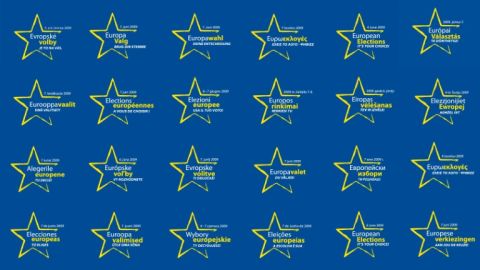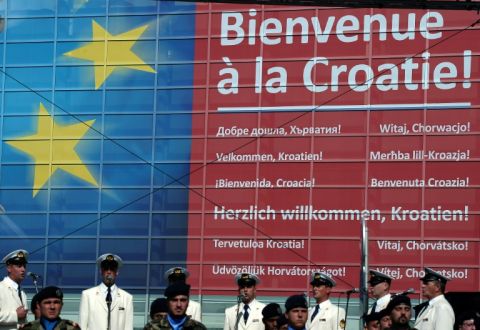Lost in translation: official languages

As the European Union has grown, so has the number of languages it officially uses.
By early 2018 there were 24, with the newcomers being Bulgarian, Croatian and Romanian.
This story published ahead of the European Union's eastern enlargement on May 1, 2004 looks at some of the challenges posed by having so many official languages.
STOCKHOLM, March 31, 2004 (AFP) - Europe occasionally speaks with one voice, but never in one language, and from May 1 the European Union's translation services will have to cope with nine new official languages as the bloc expands to 25 members.
The inclusion of Czech, Estonian, Hungarian, Latvian, Lithuanian, Maltese, Polish, Slovakian and Slovenian will bring to 20 the number of official EU languages, leading to a massive increase in the agency's work, already the world's largest translation service.
The number of pages translated, including legislation, correspondence, publications and press releases, is expected to swell from 1.5 million in 2003 to 2.06 million in 2004.
And the number of possible language combinations within the Union will rise to 380.
"So if you know anybody who can translate from Maltese to Finnish, please let us know," quipped the head of the European Commission's Directorate General for Translation, Karl-Johan Loennroth, at a seminar Wednesday on the challenges posed by the EU enlargement.
Recalling the time when the English word "copyright" was embarrassingly translated into French in one EU text as "the right to copy", Loennroth stressed the importance of getting the EU's message across to its citizens as clearly as possible.
"It's a question of rights, democracy, equality, as well as being part of a peace strategy and a multicultural society," he said, ruling out the possibility of limiting the number of official EU languages.
- Costly Tower of Babel -

"About 200 million of 380 million European Union members speak only their own language," he said, insisting that everyone was entitled to information in their own tongue.
This means the EU will need to hire 110 translators and freelancers per language due to expansion.
All this does not come for free, of course.
The cost of the Union's translation service is expected to rise from 500 million euros currently, with the existing 15 members and 11 languages, to 800 million euros when the 10 new countries join.
That's equivalent to 2.55 euros per EU citizen.
But will all of this really help make the EU more understandable to its people, who often groan about the incomprehensible "bureaucratese" language used in official EU documents?
"Yes, well, we are working on that aspect, trying to improve things. We call it 'Fighting the Fog'," Loennroth said.
